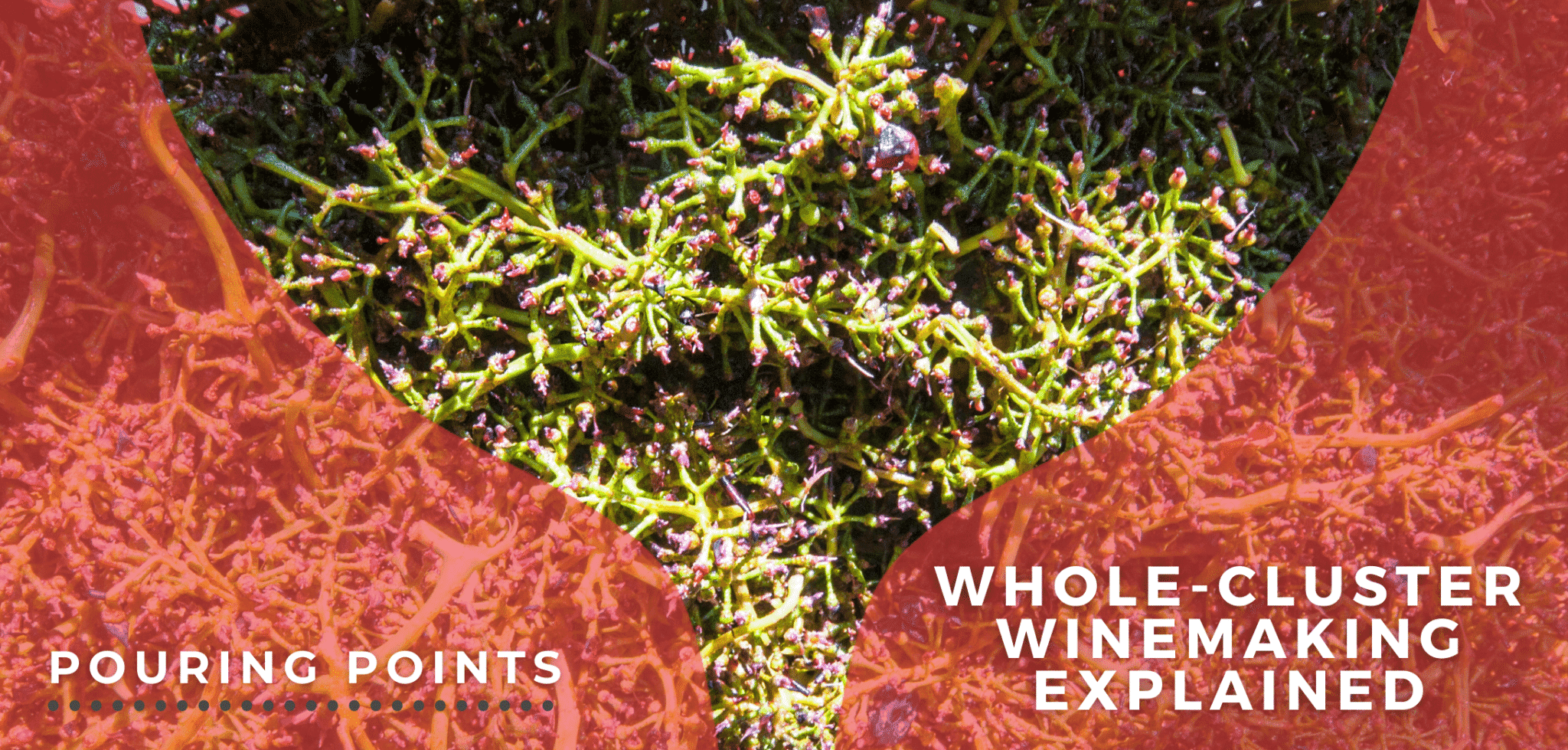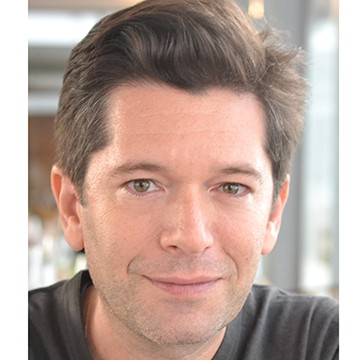Whole-Cluster Winemaking Explained
All that black magic used to produce structured, layered, and age-worthy wines? It’s just lignified stems.
By Brian Freedman
Whole-cluster fermentation is one of those rare instances in the wine world where the meaning of the concept is exactly what you think it is: Pressing entire bunches of grapes, stems and all, as opposed to de-stemming them first. The entire cluster is, indeed, crushed and fermented. The real question is why this technique is having such a moment right now.
Jamie Kutch, who produces detailed, deeply elegant Pinot Noirs under his Kutch Wines label, explains that whole-cluster fermentation “adds structure from the stems, which in essence is wood from the vineyard. Think new oak barrel, but instead of French oak forests providing their characteristic terroir, [in this case it’s] actual wood terroir from the vineyard…”
The structure that that wood provides can be attributed to their tannins, which are extracted when they’re punched down during fermentation. As a result, wines that are whole-cluster fermented tend to “stay very fresh and age very well,” Kutch goes on. He adds that, as a winemaker, the technique provides some well-appreciated breathing room: “Whole-cluster wines finish fermentation at lower alcohol levels than de-stemmed wines do,” he explained. “There isn’t a clear answer as to why, but this is a fact. Whole-cluster wines do ferment at lower temperatures than de-stemmed wines due to the stems creating a cushion, or barrier, between the berries.”
Darrin Low, Winemaker at Domaine Anderson, says that he ferments “a portion of every vintage with whole-cluster,” between ten and one hundred percent, “in small fermentation vessels in order to best control temperature and extraction techniques. The wines made with whole-cluster,” he says, “generally show strong primary fruit expression due to carbonic maceration, while contributing to aroma layers and increasing mid-palate weight with tannin and texture coming from the stems.”
Kutch also finds that whole-cluster fermentation “provides a spice note or peppery note to the wine versus the more typical fruit character from a de-stemmed wine. I consider it to be an extra-dimensional aromatic.”
Sanford Winery & Vineyards Winemaker Trey Fletcher agrees. “We employ [whole cluster] in most years to varying amounts depending on the vintage,” he explains. “It’s one of the thousand details that, if done with thought, can give a fuller expression of the site, which for us is the benefit that matters most. It moderates the fermentation, as the fruit is not crushed, and it helps put into the foreground some of the nuances of a site that may be hidden otherwise.”
Top Oregon producers have had serious success with it, too. “Years ago, our Willamette Valley Vineyards Founder Jim Bernau began experimenting with Pinot Noir by gently dropping hand-picked whole clusters in a chilled stainless fermenter, pushing all the oxygen out with CO2 and sealing the vessel tight,” recalls Winery Director, Christine Clair.
“What happened next was magical,” adds Clair, “the berries started to swell and turn pink. When they burst, they released the most aromatic, fermenting Pinot Noir. The ripe fruit and lignified stems, coupled with the fermentation methods of whole berry and whole cluster, have led to wines with fruit-forward notes with spice and earth accents, velvety mouthfeel, and [a distinctly] round, soft finish. Typically, our first red wine release of the vintage, our Whole Cluster Pinot Noir, does not lack aging potential, however, because of the added structure from the stem inclusion.”
“Today,” Clair asserts, “our Willamette Valley Vineyards Whole Cluster Pinot Noir is the number one selling Willamette Valley AVA Pinot Noir in the U.S.”
For all of the benefits, however, winemakers have to use the technique carefully. Occasionally, the wines can “smell herbaceous or green,” Kutch notes, and their more assertive tannic structure can necessitate either bottle age or decanting to release their grip on the wine. They also,” he warns, “can have lower acidity than de-stemmed wines due to the stems [precipitating] out acidity during fermentation.”
On balance, however, wines that have been whole-cluster fermented—or that have had the technique incorporated into the winemaking process—tend to be more structured, layered, and age-worthy, which goes a long way toward explaining why they’ve become so popular…among both winemakers and consumers.
Interested in learning about whole-cluster winemaking – Get WSET Level 3 Certified at a Napa WSET Level 3 Bootcamp!
What is WSET?
The Wine & Spirit Education Trust (WSET) is a global organization that offers education and qualifications in wines, spirits, and sake, for professionals and enthusiasts. Founded in 1969 in the UK, WSET has since grown to become the leading provider of wine and spirits education globally. Its courses are designed to provide a robust foundation in the knowledge of wine and spirits, covering topics from the basics of wine styles and grape varieties, to more advanced studies on viticulture, vinification, and the global business of wine and spirits.
WSET qualifications are recognized internationally and are often considered a benchmark for those looking to enter or progress within the wine and spirits industries. The qualifications range from Level 1, aimed at beginners, to Level 4, which awards the WSET Diploma, a more advanced qualification that can be a stepping stone to the Master of Wine program. WSET also offers professional qualifications in sake.














